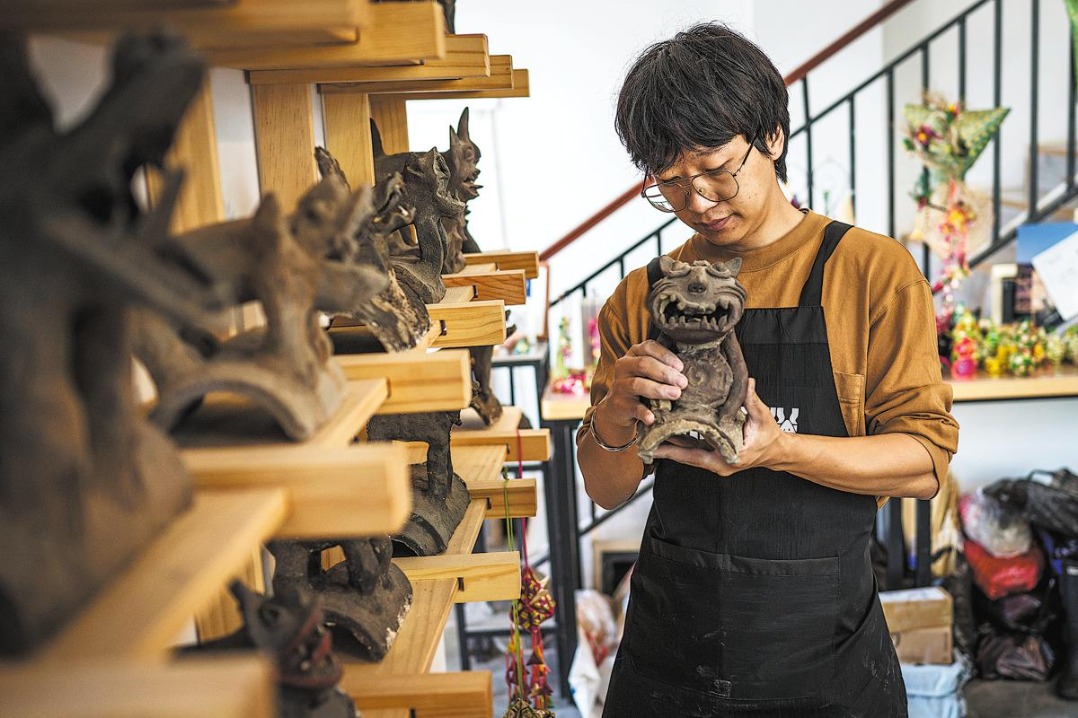Micro-lessons boom online in the country

BEIJING - Every day Huang Wei does a 10-minute economic study course, as she wants to increase her business savvy to engage more farmers in protecting ancient kiln sites.
The ceramic expert has set up an eco-agriculture cooperative called "The Porcelain Farmer" in Jinkeng, a village 8 km east of Jingdezhen, China's porcelain capital, in Jiangxi Province.
As sustainable farming is eco-friendly and good for the protection of porcelain kiln sites dating back to the Song Dynasty more than 1,000 years ago, Huang wants to encourage local farmers to grow organic farm produce.
"Using small gaps in my day to learn more about economics, I feel like someone practicing a martial art. Day by day, you become more capable," Huang said.
Self-empowering through online study by making use of small time slots is becoming a trend among young Chinese, as a large number of educational entrepreneurs venture into e-learning.
Purchasers of e-learning programs are expected to more than double from 98 million in 2016 to 188 million by the end of 2017. In 2018, the figure is expected to reach 292 million in China, according to a report from iiMedia Research.
Xue Zhaofeng, a professor from Peking University, has uploaded a 10-minute audio course on economics to his column on iGet, a mobile learning app with 10 million users.
Charging 199 yuan (about $30.5) for one year, Xue's column has attracted over 170,000 subscribers within half a year.
Xue said some of the audience listened to this program when they went out to buy breakfast.
Another report released by Alibaba forecasted that the online study market would reach 50 billion yuan by the end of 2017.
Chen Liteng, an analyst from China E-Commerce Research Center, said that the ever-accelerating pace of work and life had made the time for learning more fragmented.
To compete for the audience's time, content providers need to help users learn in a more effective way, by selecting high quality content, according to Chen.
The programs cover a broad sphere of topics from public accountant certificate exams to driving license tests, and have been well received.
Jiakaobaodian, for example, an app aiming to help users pass the driving license test, had been downloaded over 66 million times, according to data from Vivo, a smartphone producer.
"Nowadays, people favor personalized learning more and tend to learn in a flexible way," said Chen Li, vice president of Beijing Normal University.
Analysts attribute the rapid growth of paid online study programs to the country's increasing number of Internet users, convenient mobile payments and government efforts in protecting the copyright of Internet works.
To cater to the needs of online study, China will build a digitalized educational system to provide more personalized education programs, according to Du Zhanyuan, vice minister of China's Ministry of Education.
"Innovations based on artificial intelligence and big data technology as well as smart-teaching methods also boosted the immersive self-learning market," said Xiang Bibo, a technician with an online English learning platform.
- Shanxi ends province-wide blanket fireworks ban
- Audit: China fixes bulk of fiscal problems tied to 2024 budget
- China reports major gains in circular economy
- Chinese lawmakers review draft revision to banking supervision and regulation law
- Top legislature to study draft laws on environment, ethnic unity, national development planning
- Administrative organs must secure people's interests: senior judge





































